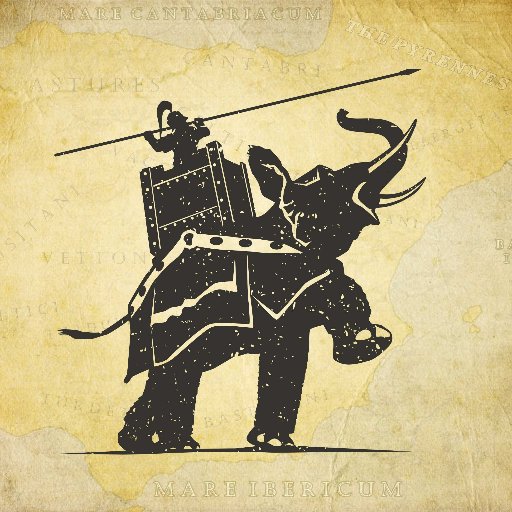In 322 BC the regent Perdiccas, a military hero and the official protector of Alexander the Great’s family, won the allegiance of the veteran Macedonian Silver Shields. A huge coup for Perdiccas
Alexander's Successors at War: The Perdiccas Years 📖 https://t.co/39lC3zAeDV
The First War of the Successors was marked by a fierce rivalry between Eumenes and Neoptolemus. They had started the conflict as allies; the latter then betrayed the former; they fought two battles against each other, the last of which was marked by a homeric duel. Eumenes won.
Over the winter of 322 / 321 BC Eumenes, the new governor Cappadocia, embarked on an astonishing recruitment campaign. Within a couple of months he had mustered 6,300 cavalrymen, all loyal to him, well-trained and well-equipped
📖 https://t.co/PpkLnm8EYN
During the First War of the Successors, Eumenes rarely used Macedonian soldiers. The key to his victories were his Cappadocian cavalry, loyal to him and highly-skilled horsemen
Artwork by © Johnny Shumate
My enemy's enemy is my friend. In early 320 BC, noticing their shared animosity toward the elderly viceroy Antipater, Perdiccas and the Aetolians forged an alliance. Together they would oppose Antipater and his allies during the First Successor War
Alexander the Great and his early successors favoured lightening assaults on cities rather than prolonged sieges. Scaling ladders were regularly used to assault fortifications, while elephants were also used to tear down wooden palisades
📖 https://t.co/shDmNyzBAQ
Even after defeating the Athenian-led revolt of 323 / 322 BC a strong remnant of resistance to Macedonian rule on the Greek mainland remained. One beacon of rebellion still had to be extinguished. The Aetolians
Alexander's Successors at War 📖 https://t.co/lAe9LGuICq
In c.328 BC Philip, a member of Alexander the Great's infantry guard, ran c.80 km to keep up with a cavalry chase. He fought in the ensuing battle. Only at its end did ‘that vital spark which had kept him going desert him.’ He collapsed and died from exhaustion moments later
'So it was that Macedonia, her leaders split between warring factions, armed herself to stab her own vitals, turning her sword from war against a foe to shed the blood of countrymen, and ready, like the insane, to lacerate her own hands and limbs'
📖 https://t.co/S3F2nnXyAB
At its beginning, it appears the Macedonian phalanx was primarily trained to be formed 16-men deep and 8-men across – the men being in very close order thanks to the small size of their shields. This basic tactical unit consisted of 128 men, commanded by an officer: a lochagos


















